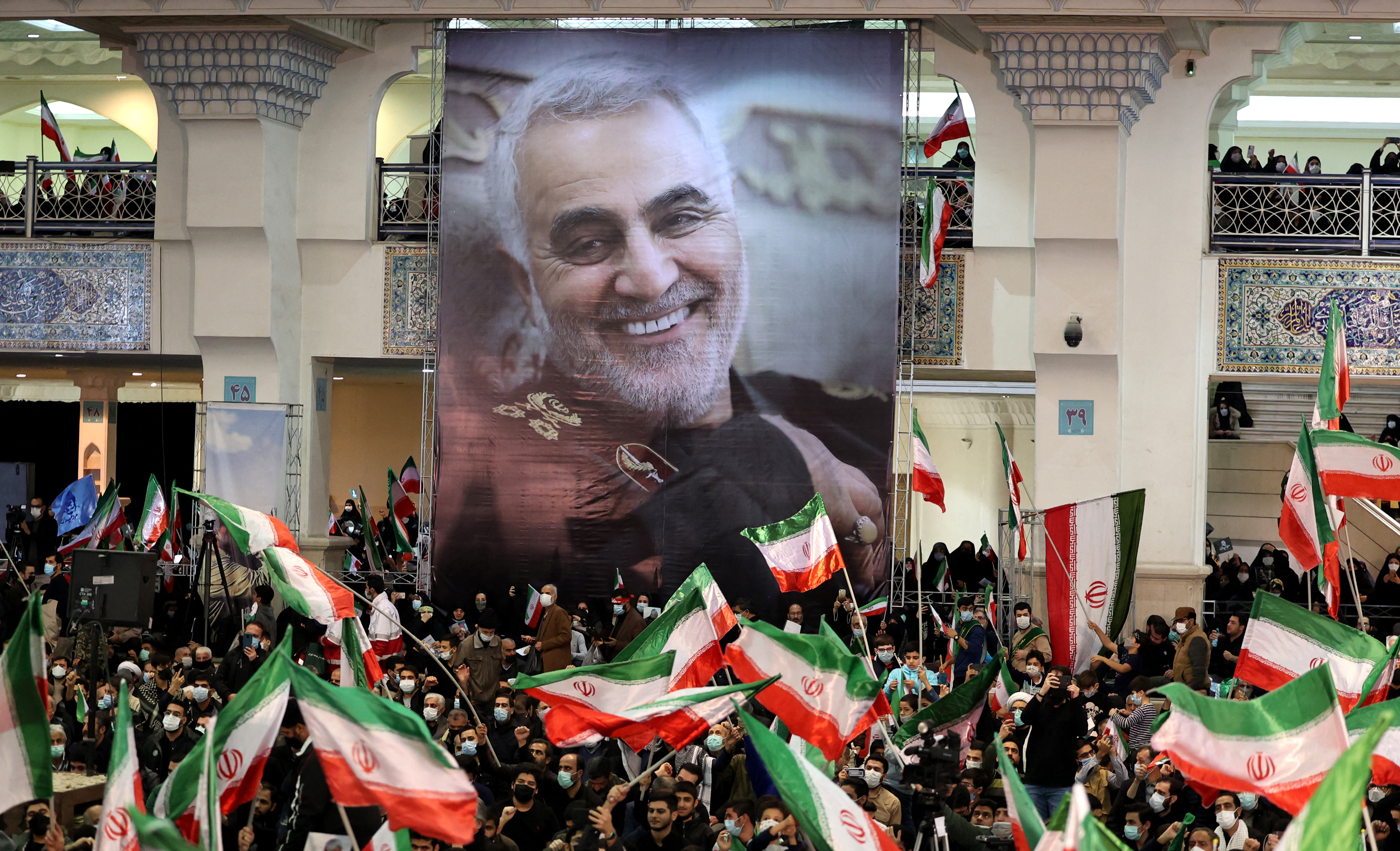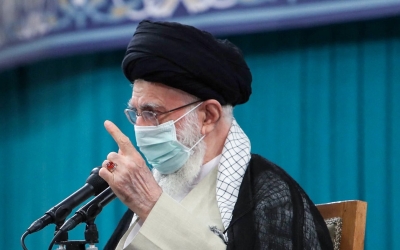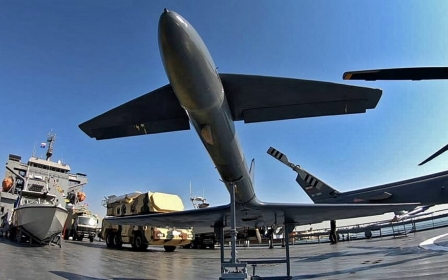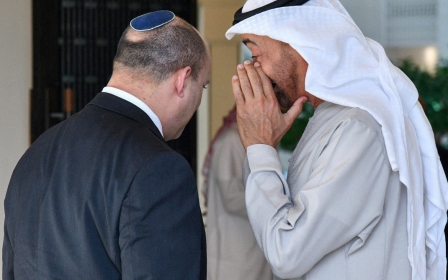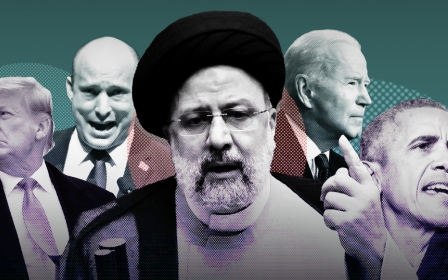Why Israel’s assassination strategy in Iran will fail
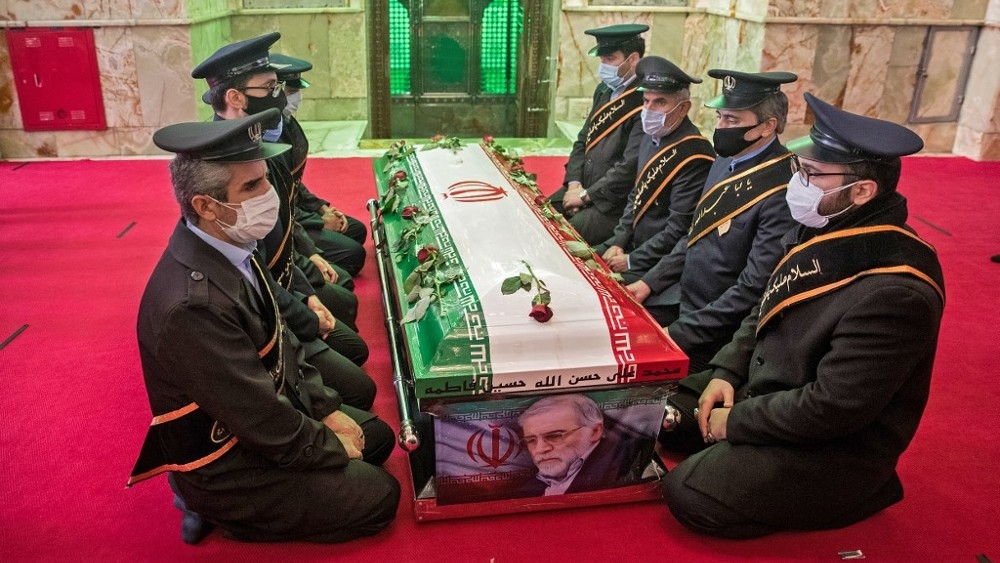
As the second season of the sketchy television series Tehran continues to depict a distorted image of Iran’s security and intelligence systems, in the real world, Israel has been assassinating Iranian scientists, engineers and officers in the country’s national security sector.
The variety of recent attacks reveals that Israel has decided to act unilaterally against not just Iranian nuclear sites and scientists, but also those working in other areas, such as drone and missile programmes. This might all be part of Israel’s "death by a thousand cuts" strategy that Prime Minister Naftali Bennett outlined to US President Joe Biden last year.
At best, however, assassinations and sabotage should be regarded as scratches, not 'cuts' to Iran's security and defence programmes
Israel doesn’t claim responsibility for the attacks against Iranian targets, apparently seeking to preserve a mysterious image of its intelligence operations on Iranian soil through social media propaganda. Regardless, it is unlikely that these operations will lead to any significant disruptions in the ambitious plans and projects of Iran’s defence apparatus.
Iran shares land or water borders with more than a dozen countries, extending for thousands of kilometres and protected mostly by traditional tools and practices. This makes them penetrable by foreign state-sponsored terror agents.
The Iranian Border Guard Command, a subdivision of the country’s Law Enforcement Force tasked with monitoring and protecting the country’s borders, is not as well-equipped or well-trained to cope with national security matters as the country’s intelligence agencies. That is likely why Supreme Leader Ayatollah Ali Khamenei recently supported promoting the Law Enforcement Force to a general command structure, giving it a stronger intelligence role.
New MEE newsletter: Jerusalem Dispatch
Sign up to get the latest insights and analysis on Israel-Palestine, alongside Turkey Unpacked and other MEE newsletters
Protective protocols
Beyond border security issues, the Iranian government does not apply protective protocols to all scientists, engineers and technicians associated with its defence programmes, due to the large numbers of people employed in such positions. Many work in the civil sector or universities, and merely share their knowledge with the government.
As a result, it doesn’t require exceptional planning or equipment to trace and hit such targets at an opportune moment. If Iran’s intelligence services employed protective protocols for anyone working in these positions, it would be much more dangerous and costly for Israel to carry out multiple strikes in a short timeframe.
On the other hand, although Israel has assassinated top figures - such as Mohsen Fakhrizadeh and Hassan Tehrani Moghaddam, the masterminds of Iran’s nuclear and missile programmes respectively - and contributed to the US assassination of General Qassem Soleimani, the country’s defence strategy has never been reliant on a single individual.
Top Iranian universities have created development centres, gathering and organising the knowledge of the country’s scientific elite. The increasingly sophisticated knowledge-based production framework, working in concert with the country’s defence sector, cannot be disrupted by assassinations or sabotage of individuals or facilities. Khamenei himself has stressed the value of this framework.
Effective strategy
Israel’s attacks will only strengthen the Iranian leadership’s conclusion that its internal power-building strategy is effective and deserves more political and financial attention from government. Moreover, the continued assassinations of civil elites and scientists gives the state a more tangible pretext for mobilising public anger against Israel as a rogue regime.
Over the past four decades, Iran’s intelligence agencies have successfully neutralised myriad threats against the country, but there are still critical weak points. The intelligence community must make a concerted effort to counter Israel’s operations in the country as a systematic and strategic risk.
Israel has been expanding its intelligence foothold across Iran’s borders under the guise of “smart villages” in Azerbaijan or “economic partnerships” with Iraqi Kurdistan.
The pattern of Israel’s operations inside Iran suggests that it has exploited loose protocols, going after isolated targets to minimise the possibility of engagement with Iranian intelligence and to avoid leaving a footprint. Yet, while Iran can rebuild sabotaged sites, the extraction of classified documents can bring enormous consequences; by obtaining the “nuclear archive” in 2018, Israel learned much about Iran’s nuclear facilities, which aided sabotage operations.
At best, however, assassinations and sabotage should be regarded as scratches, not “cuts” to Iran’s security and defence programmes, which constitute the backbone of Iran’s national security doctrine and involve numerous research groups, scientists, technicians, production lines and arsenals, many of which are confidential.
While occasional infiltrations might bring reputational damage or isolated costs, they cannot incapacitate Iran’s countrywide development chains.
The views expressed in this article belong to the author and do not necessarily reflect the editorial policy of Middle East Eye.
Middle East Eye delivers independent and unrivalled coverage and analysis of the Middle East, North Africa and beyond. To learn more about republishing this content and the associated fees, please fill out this form. More about MEE can be found here.



